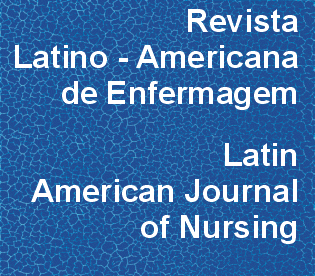A experiência de interação da família que vivencia a doença e hospitalização da criança
DOI:
https://doi.org/10.1590/S0104-11692006000600010Palavras-chave:
família, criança, doença, hospitalização, relações interpessoais, bem-estar familiar, enfermagem familiarResumo
A partir do questionamento sobre quais os significados atribuídos pela família às interações vivenciadas durante a hospitalização da criança, este estudo buscou compreender a experiência interacional da família no hospital pediátrico e identificar as intervenções consideradas efetivas sob a perspectiva da família. O estudo teve como orientação teórica o Interacionismo Simbólico, que conferiu sustentação ao processo de análise dos dados e como referencial metodológico a Teoria Fundamentada nos Dados. Participaram do estudo 6 famílias de crianças hospitalizadas. Os resultados permitiram a identificação dos fenômenos "sentindo-se segura para assumir riscos" e "sentindo-se insegura para assumir riscos", representativos dos significados simbólicos atribuídos aos contextos relacionais que emergem da interação entre a família e os profissionais de saúde. Os conceitos identificados contribuem especialmente para ampliar a compreensão da abordagem de cuidado centrado na família e proporcionam um caminho para a reflexão acerca da interação e intervenção com a família na prática clínica pediátrica.Downloads
Os dados de download ainda não estão disponíveis.
Downloads
Publicado
2006-12-01
Edição
Seção
Artigos Originais
Licença
Os direitos autorais são de propriedade exclusiva da revista, transferidos por meio da Declaração de Transferência de Direitos Autorais (presente no Formulário Individual de Declarações) assinada pelos autores. Para a utilização dos artigos, a RLAE adota a Licença Creative Commons, CC BY-NC Atribuição não comercial (resumo ou código completo da licença). Com essa licença é permitido acessar, baixar (download), copiar, imprimir, compartilhar, reutilizar e distribuir os artigos, desde que para uso não comercial e com a citação da fonte, conferindo os devidos créditos autorais a Revista Latino-Americana de Enfermagem. Nesses casos, nenhuma permissão é necessária por parte dos autores ou dos editores.Como Citar
Silveira, A. O., & Angelo, M. (2006). A experiência de interação da família que vivencia a doença e hospitalização da criança. Revista Latino-Americana De Enfermagem, 14(6), 893-900. https://doi.org/10.1590/S0104-11692006000600010



